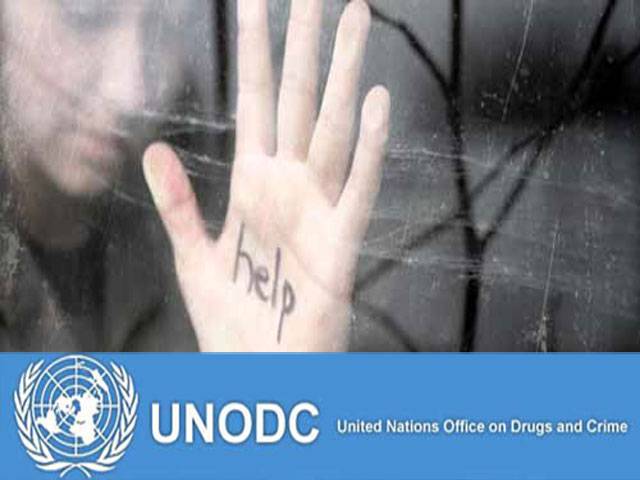ISLAMABAd - Cesar Guedes, Representative of UNODC (United Nations Office on Drugs and Crime) in Pakistan, Thursday said that Federal Investigation Agency (FIA), the key agency dealing with immigration matters, should identify bad elements within its lines that were allegedly involved in cases of human smuggling to save the image of the institution.
In an exclusive interview with The Nation, Cesar Guedes said that UNODC, as an international organization provided best technical knowledge and capacity for its counterparts. “We give this technical assistance in good faith and we expect the same good faith and ethical approach from all our member countries,” he said claiming there is a corruption in Pakistan and in every country in the world but every law enforcement institution (LEI) should have to do the best quality job.
Guedes, who has been recently appointed as the Representative of the United Nations Office on Drugs and Crime (UNODC) in Pakistan, viewed that bad elements in FIA should be identified and bring to justice in an exemplary manner because there was just a very few officials of the institution who were tarnishing its image that otherwise had a great recognition.
He thought that in order not to tarnish image of the institution, they should take exemplary measures for those elements that were involved in this type of activity. Actually he was responding to a question about alleged involvement of FIA in human smuggling as well as trafficking and the role of international agencies like UNODC in this connection.
Pakistan is an origin and transcendent destination country for human trafficking and smuggling of migrants, said Cesar Guedes, who has 20 years of experience of working in various agencies of UN such as UNODC, UNDP, UNIDO and UN Volunteers.
Responding to a question about willful smuggling of Hazara community to Australia and other countries, he said that the Hazara community and other religious and cultural minorities were being targeted by militant groups and, therefore, these minorities were at risk where they lived. “Of course, the government has to continue trying to do more so that such minorities can hope to stay and have a life in the country,” he argued. But in some regions, the minorities feel they were unsafe. “It is true when you see the offer of green pastures with very little investment, victim sides jump into a plane or a boat or a bus to go abroad on a very attractive offer,” he said.
“Our recommendation would be to doubt those offers and get very informed to dig further into such information and not to jump into very big mistakes,” the UNODC Representative said.
About the question of efforts of UNODC to block new and old routes of migrant smuggling and human trafficking, Cesar said, “The answer of your question would be that law enforcement institutions (LEIs) should have to know and identify better such schemes.”
Replying to a question how UNODC assists local agencies of Pakistan in prevention of human trafficking, Cesar said, “We are involved into a very solid and comprehensive scheme of training the law enforcement institutions.” He said UNODC has developed a computer-based package of modules for the prevention of human trafficking and how LEIs at federal and provincial level could identify schemes of human trafficking and smuggling.
“Once such schemes are identifies, we train how to deal with the victims, how to conduct crime scene investigation properly so LEIs could address the issues with the highest degree of standards and professionalism,” he said.
Cesar said that UNODC had training schemes on the prevention of human trafficking and this was what they provided to the institutions like FIA, Airport Security Force, the Pakistani Customs, Anti-Narcotics Force (ANF), border control institutions such as Levies and others in Pakistan. These institutions participate actively in the trainings that have been done at junior, medium and senior official levels.
He said that UNODC provided equipment and they also used to conduct a number of on-site trainings with high standards and well recognized trainers from Pakistan and abroad. “We have sent Pakistani officials for training in other institutions abroad to provide for them to get the best quality of knowledge to tackles the issue of human trafficking and smuggling,” he concluded.
Saturday, April 20, 2024
UNODC asks FIA to point out its ‘black sheep’
Human trafficking

Caption: UNODC asks FIA to point out its ‘black sheep’
Policitising Tragedy
April 20, 2024
Tehran to Rafah
April 20, 2024
A New Leaf
April 20, 2024
A Tense Neighbourhood
April 19, 2024
Dubai Underwater
April 19, 2024
Dangers of Deepfakes
April 20, 2024
Feudalism
April 20, 2024
Kite tragedy
April 19, 2024
Discipline dilemma
April 19, 2024
Urgent plea
April 19, 2024
ePaper - Nawaiwaqt
Advertisement
Nawaiwaqt Group | Copyright © 2024





